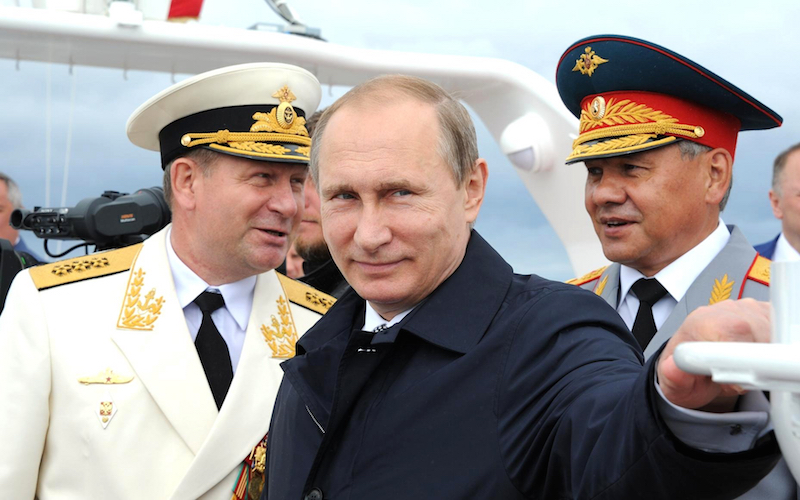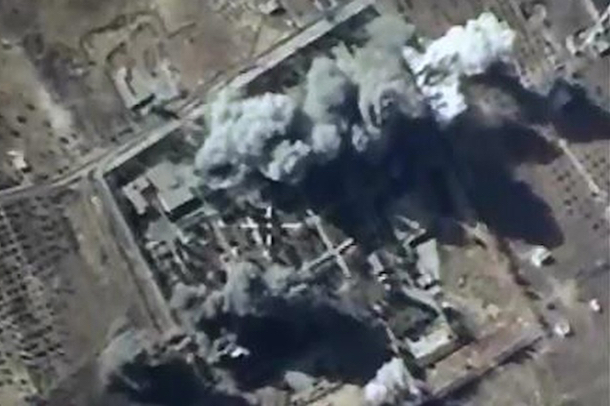
Chest Thumping and Chess Playing in Syria
Political pundits in the U.S. are working overtime trying to get in to the mind of Vladimir Putin and explain to the world why Mr. Putin has decided to jump into the fray in Syria. Is it Great Power politics, an attempt to distract Russians from the country’s many economic problems, or a simple case of chest thumping? And what, if anything, can or should the U.S. and the West be doing in response?
Lost in much of the discussion is the notion that Mr. Putin is a very deliberate tactician, who would never undertake such an endeavor without having carefully considered potential benefits and consequences. My view is that Russia’s war on ISIS in Syria is well thought out – both in terms of tactics and timing – to accomplish three basic objectives.
First, of course, is to prop up Mr. al-Assad, with Syria being Russia’s only remaining client state in the Middle East. Second is to take the lead in the fight against ISIS, since no other major power is doing so. And third is to make Russia part of the dialogue and solution to the end game in Syria, and elsewhere in the Middle East.
The last goal is the one the U.S. and West may have the most difficult time accepting, for it demonstrates that the West has utterly failed to effectively counter ISIS, remove Mr. Assad, effectively manage the mess it made in Iraq, or have an influence in Saudi Arabia’s war in Yemen. Given Russia’s historical and ongoing relationship with Iran, and its growing influence with Saudi Arabia, Mr. Putin is uniquely positioned to become the ultimate power broker in the Middle East. The U.S. may not like it very much, but Mr. Putin has ensured that, at least for the time being, all roads to the Middle East lead to Moscow.

Far from acting out of weakness, as some of the pundits maintain (given Russia’s precarious economic situation), Mr. Putin’s political maneuvering in the Middle East has been a sign of real strength – particularly given its economic difficulties. Not only has Russia demonstrated firm resolve to take on ISIS head on, it has done so in a definitive and powerful manner – rather than the U.S. approach, with limited ‘surgical’ strikes and a failure to craft and embrace a real strategy. Although it can be argued that Russia also waited too long to act against ISIS, Mr. Putin appears to be making up for lost time, with a vengeance.
The U.S. really lost its golden opportunity to have meaningful influence in the Syria conflict when it failed to act in 2011. It has largely become irrelevant whether the U.S. acts or not, at this juncture. That moment has passed. Whatever U.S. does or does not do now, it will be too little and too late. It is also not clear at all that anything the U.S. might have done would have had a meaningful impact – even in 2011.
America’s allies are left wondering what they should be doing. The Saudis cannot count on the U.S., so they are embracing Russia. Instead of looking across the pond, the Europeans are now suddenly glancing toward their neighbor in Moscow. At this point in time, what matters is action, and Mr. Putin is taking it. The U.S. has been relegated to portraying every setback as ‘neutral’ in the region and must simply watch from the sidelines. There is now virtually nothing the U.S. can do that will have a meaningful impact on the end game in Syria or elsewhere in the region.
While it can certainly be argued that Russia misses the ‘glory days’ of the Soviet era, as evidenced by its actions in Ukraine and Syria, in today’s leaderless world, it is realpolitik that rules the roost, a notion Mr. Putin understands, and the basis upon which he is willing to act. If Mr. Putin’s strategy works, it has a potentially large payoff, in the form of salvaging Mr. Assad’s rule (Russia’s only Middle Eastern port at Tartus), shoring up Russia’s only regional client state, and putting Moscow back in the game in the Middle East. The potential downside is significant, in terms of becoming embroiled in a war with no end that saps precious financial resources from Moscow, when it is more vulnerable economically than at any time since the collapse of the Soviet Union.
However, the potential payoff appears to outweigh the risks. Moscow has, in one swift stroke, transformed itself from being stuck in the status quo ante to being the actor most states in the region now want to be associated with. All of Syria’s neighbors now have an automatic interest in knocking on Moscow’s door, and with Russia holding hands with both Iran and Saudi Arabia, any potential prospect of a rapprochement between Riyadh and Tehran (however remote that may seem) would appear to be linked to Mr. Putin. No other leader can say that right now.
This article was originally posted in The Huffington Post.

